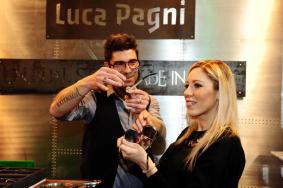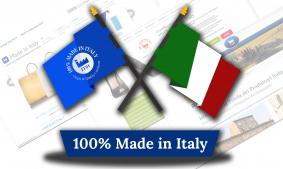Didier Bonnin Castellarin, at the head of the footwear chain of the French group, talks about the strategy of integrating suppliers. Objective: the craft heritage.
Give continuity to a savoir-faire that has always been at the service of creativity. This is the goal that Chanel has been investing since 1985, the year in which it has started acquisitions that look to the artisan heritage of excellence. In this way, the double-C maison ensures good production capacity, strengthening its relations in different territories. In Italy, the acquisitions of the Roveda and Gensi producers are perfectly successful partnerships. Telling it to Pambianco Magazine is Didier Bonnin Castellarin, CEO of Roveda and general manager of the footwear supply chain in Chanel's fashion manufactures.
The acquisitions (majority) of Roveda and Gensi date, respectively, 1999 and 2015. What were Chanel's needs and the objectives of these operations?
Thanks to the impetus of its subsidiary Paraffection, Chanel approached Roveda and Gensi respectively in 1999 and 2015. Roveda was the first investment of the maison in Italy. Chanel and Roveda started working together since the early 80s and the Parabiago plant has immediately become one of the leading partners for the development and production of footwear collections. Strengthening our link with equity participation has been a natural transition. In this way, we have been able to support the company, increasing its internal and external capacities and improving its production processes. Like all companies that belong to Paraffection, Roveda keeps an eye turned to the outside, with development and production activities for a dozen other fashion brands. As for Gensi, at the time of acquisition, in 2015, it was a family-owned company, specialized in the production of uppers and high-end casual and sports shoes. The company worked with Roveda for several years and it was this collaboration that allowed us to support our growth in these types of products. Roveda and Gensi are two examples of perfectly successful partnerships with Italian companies. These partnerships have enabled Chanel to secure a portion of its production capacity.
When and how is a supplier acquired by Chanel?
Each story is unique, but the examples of Roveda and Gensi underline the importance of a long-term and consolidated relationship with the fashion house. The companies in which Paraffection invests must be able to excel in the transformation of creative ideas, as well as having a recognized know-how, which guarantees their peculiar internal production capacity and a serious and controlled network of production partners. The relationship and the quality of the managers are a key element in the success of our projects. For example, in the case of Gensi, the dynamism, vision and entrepreneurial spirit of Gennaro Pigliacampo, still at the head of the company, were among the reasons why it was decided to invest.
How important are territorial competences?
The strength of Italy, above all in the fashion sector, lies in the organization of its SMEs on the network, within competing districts, which have developed over time. It is essential for us to be able to rely on companies that play an important role in these districts, just as in the case of Gensi on the border between Marche and Abruzzo, and Roveda in Parabiago. The geographical proximity of their suppliers and contractors, as well as the perfect knowledge of their partners, make companies extremely agile and reactive, an undeniable advantage in the fashion world.
How is this integration of the supply chain managed?
Paraffection allows us to support our partner companies with regard to their strategic and economic decisions or in any other area in which they may need help, but guarantees them (and this is the case of Gensi and Roveda) a very high level autonomy in the organization of operations and commercial decisions. For example, companies are encouraged to work for other brands, with a total guarantee of confidentiality in all their development projects, and Paraffection does not intervene in any way on these choices. It is a unique industrial model in our sector. Above all, this freedom allowed Roveda and Gensi to become key companies in their market segments, to expand their know-how, to attract new talent and to develop faster.
What is and how has the strategy changed in Italy?
Italy has a very powerful artisanal and industrial work force, envied in the fashion and luxury sector. The sensitivity towards 'beauty' and aesthetics, up to the culture in general, are fundamental advantages for Italy, in the understanding and integration of the creative process. Moreover, the entrepreneurial spirit of Italians, their dynamism and their daring have allowed the development of a dense network of companies serving our sector. If we take the example of footwear, in Italy there are still 4,700 producers and 77 thousand artisans who contribute to the development and production of footwear collections of all the fashion houses in the world. This is the main reason why Chanel decided to invest in Italy. France and Italy are countries where both the know-how and the production of luxury items are flourishing, it would be impossible to compare them, also because of their complementarity. However, in some sectors, such as luxury footwear, made in Italy is increasingly synonymous with quality, especially in recent years.
How are the realities acquired in Italy coordinated?
Paraffection does not talk about an effective desire to centralize the decisions, it is rather to facilitate the conditions to encourage the independent development of companies. For example, between Roveda and Gensi there are obviously collaborations, synergies, an ecosystem, but all these mechanisms are developed only if this has a sense and an interest for the maison and for each of the companies involved.
How important is integration with the territory also from a social point of view?
Our companies have been born and have developed in particular geographical contexts rich of expertise, therefore the mission is to continue to strengthen the relationships with the different territories. Both Gensi and Roveda have activated training projects to attract new generations to footwear craftsmanship and these are shared and developed with local partners and other companies in the area. The DNA of our companies is well anchored to the history of the regions in which they were born, but this should not prevent them from enriching themselves with new skills, experimenting and innovating in other Italian territories.
In 2020, the website dedicated to Chanel's Métiers d'Art will be launched in France. Do you think that this space to protect craftsmanship is replicable in other parts of the world?
The situation in Paris is very particular: there is a high concentration of Métiers d'Art, so the idea of bringing these companies together under one roof naturally came out. The Italian context is different in that, as we have seen, the different savoir-faire, the artisans and the producers are distributed throughout the national territory.







